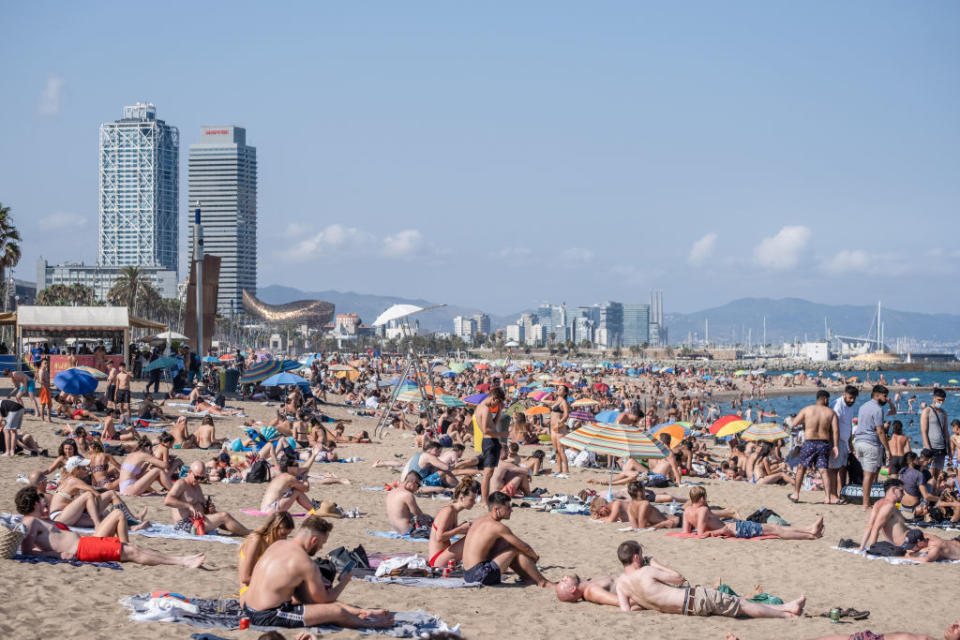Coronavirus: Fears of second wave in Spain as case rate triples
Thousands of people in Barcelona are ignoring government advice to stay home despite coronavirus cases surging in recent days.
Alarming images over the weekend in the city, one of Spain’s worst-affected areas, show hordes of people socialising across the city, while many flocked to the beach with little social distancing in place despite a plea from authorities to avoid public spaces.
The growing crowds at several beaches in the city left police no choice but to shut them down.

Spain is one of several countries now fearing a second wave after it eased restrictions when it successfully drove numbers down significantly by the end of May.
And like Melbourne, Barcelona from Friday was subject to new restrictions in a bid to curtail the virus’s spread.
Coronavirus India: Alarming photos from market despite lockdown
Dad’s warning after whole family contracts ‘horrific’ COVID-19
More than four million residents in the Catalan capital have been told to only leave home for essential reasons, avoid travel, and keep indoor and outdoor groups at no more than 10 people.
Yet while the Victorian government has implemented a mandatory six-week lockdown for Melburnians with a heavy police presence, three regions in Catalonia are subject to far less stringent measures, which authorities say are simply recommendations.

Over the last week, Catalonia has recorded 7,007 cases. In the same period, Victoria had 2,010.
“The situation is very worrying,” Fernando Rodríguez-Artalejo, the director of the Preventive Medicine and Public Health Department at the Autonomous University of Madrid, told El Pais.
The virus rate has now tripled from late June to mid-July across Spain, deputy health emergency chief Maria Sierra told a news conference on Monday (local time).
The rate of COVID-19 has jumped from eight cases per 100,000 inhabitants at the end of June, when the country's state of emergency ended, to 27 per 100,000.
There are now more than 200 clusters with Health Minister Salvador Illa calling on residents to respect the health measures.

With fears the rules could soon become enforced, a growing number of people have left the city to either enjoy their last days of free movement in nearby holiday towns or evade them completely.
“We know that they recommended against leaving because there are outbreaks in Barcelona, but we decided to give ourselves a weekend of freedom precisely in case they confine us,” one resident told El Pais.
Spanish authorities have identified hospitality venues as one of the main sources of infections.
Restaurants and bars have been told to only allow 50 per cent of capacity while several nightclubs across the nation have been shut after large clusters centred around the venues.
Nightclubs in metropolitan Barcelona were closed over the weekend as a preventative measure.
“The closed places, with many people, without a mask and without keeping them at a distance, is where the outbreaks are taking place,” Ms Sierra said.
with Reuters
Do you have a story tip? Email: newsroomau@yahoonews.com.
You can also follow us on Facebook, Instagram and Twitter and download the Yahoo News app from the App Store or Google Play.




